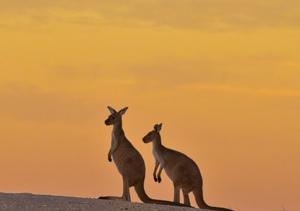Conserving Australia's mammals
UNSW will host the annual scientific meeting of the Australian Mammal Society, a thee-day conference focusing on the conservation and management of a wide range of mammal species.
UNSW will host the annual scientific meeting of the Australian Mammal Society, a thee-day conference focusing on the conservation and management of a wide range of mammal species.

UNSW will host the annual scientific meeting of the Australian Mammal Society next week. The conference, which runs from Monday July 8 to Wednesday July 11, will focus on the conservation of Australia’s mammals and research will be presented on a wide range of animals, including bats, rats, kangaroos, koalas, quolls, seals and dolphins.
“Australia has the worst record of mammal species loss in the world,” says conference co-organiser, Dr Mike Letnic, of the UNSW School of Biological, Earth and Environmental Sciences.
“This is a fantastic opportunity for scientists, mangers and practitioners from universities, zoos, museums, government departments and industry to talk about how best to manage and conserve Australia’s remaining mammals.”
Research highlights include:
Hopping marsupials: Hopping is rare in mammals yet is the way the largest and fastest marsupials - kangaroos and wallabies – get around. Studies on the metabolisms of marsupials are leading to new ideas about the evolution of this mode of transport, with one possibility being that hopping arose in small, bounding tree-dwellers, such as possums.
Emeritus Professor Terry Dawson, UNSW, t.dawson@unsw.edu.au
Cane toad aversion therapy: An aversion to live cane toads was induced in captive-bred northern quolls by feeding them dead cane toads containing a nausea-causing chemical. These toad-smart quolls survived longer when introduced into the wild. Deploying toad-aversion sausage baits ahead of a toad invasion may he help reduce the impact on quolls in the Kimberley.
Dr Jonathan Webb, UTS, Sydney, jonathan.webb@uts.edu.au
Other interesting papers:
Event details:
What: Australian Mammal Society 59th Scientific Meeting. Full speaker list available
When: July 8-July 10, 2013
Where: Biomedical Theatres, (map reference E27) UNSW
Media contacts:
Dr Mike Letnic, UNSW, m.letnic@unsw.edu.au | UNSW Science media: Deborah Smith, 9385 7307, 0478 492 060, deborah.smith@unsw.edu.au